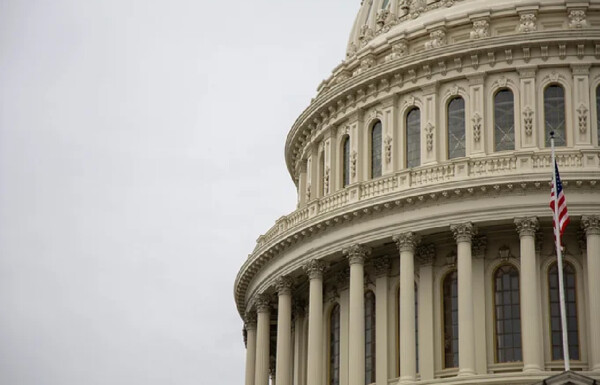Laredo Mayor Victor Treviño Joins Local Farmers, Agriculture and Sustainability Champions To Highlight Critical Federal Funding to Support Farm Conservation Programs

Speakers called on federal officials to oppose any attempts to reduce investments in sustainable agricultural programs.
(LAREDO, TX) – Today, community leaders gathered for a press conference to highlight the significant impact of the federal Inflation Reduction Act (IRA) on Texas’s agricultural sector. This landmark legislation, signed into law in 2022, is providing essential funding to help farmers implement sustainable practices and address environmental challenges, enhance food security, and boost the local economy.
Thanks to this transformative legislation, roughly $19.5 billion was allocated to the U.S. Department of Agriculture (USDA) conservation programs designed to help farmers implement conservation practices and promote sustainability, including methods like low-till farming and carbon sequestration. In the past, these conservation programs were oversubscribed and underfunded, but thanks to the new law, more of Texas’s farmers are now able to participate in these popular programs.
Mayor of Laredo Dr. Victor Treviño emphasized the importance of agriculture to Laredo’s economy, stating, "Agriculture is the backbone of Laredo’s economy, and our region is responsible for half of total U.S. agricultural exports beyond our border through the Port of Laredo, the number one port in the nation. The investments from the IRA are essential for ensuring our farms can continue to thrive, adapt to challenges posed by extreme weather, and maintain our position as a key agricultural hub. This funding will bolster our local economy, provide jobs, and support the livelihoods of countless families in our community."
Texas’s agriculture industry is a key component of its economy, contributing significantly to both employment and economic output. In 2022, Texas farms sold $32.2 billion in agricultural products, compared to $24.9 billion in 2017. However, environmental challenges pose significant risks to this sector, with increasing temperatures and more frequent extreme weather events threatening crop yields, water resources, and farm viability.
Marcella Juárez, Owner of Palo Blanco Farm and Ranch, highlighted the benefits of USDA conservation programs for small farmers. "The USDA’s conservation programs are vital for small farmers like us. These initiatives help us nurture the health of our land through practices like regenerative grazing which improves soil health and drought resiliency. By promoting regenerative practices, we can continue to produce food for our community while protecting our environment. This support is especially critical in Texas, where agriculture is deeply intertwined with our way of life and economic stability."
Nydia Robles, Executive Director of Laredo Main Street, discussed the role of conservation programs in building stronger food systems. "Sustainable farming practices are essential for creating resilient food systems that nourish our communities,” said Robles. “The conservation programs funded by the IRA make farms more sustainable by supporting techniques like cover cropping and drip irrigation, thereby strengthening our local food economy and supporting community health. In Laredo, where local agriculture is a cornerstone of our economy, these programs ensure that we can build a stronger, healthier future for all residents."
José Moreno III, Executive Director of the Laredo Center of Urban Agriculture and Sustainability, stressed the importance of continued funding for these programs. "For nearly 20 years, USDA conservation programs have provided invaluable support to local farmers, yet funding has often fallen short,” said Moreno. “Thanks to the IRA, we have the opportunity to expand these programs to many more farmers in Laredo. The Environmental Quality Incentives Program (EQIP), for example, is now better funded to help farmers implement sustainable practices like reduced tillage and improved irrigation systems. Now is not the time to cut back on funding; we must continue to support these critical initiatives to ensure our agricultural community can thrive and sustain our local economy."
The IRA designates nearly $40 billion to climate-smart agricultural initiatives, with an additional $14 billion to encourage rural communities to adopt renewable energy sources, fostering both job growth and a cleaner environment.
As the 2018 federal farm bill nears its expiration, safeguarding climate-smart agricultural investments is more crucial now than ever. Speakers also called on federal officials to thwart any attempts to reduce or redirect the money for sustainable and conservation-focused agricultural programs during the consideration of a new Farm Bill.
Please find a full recording of the event HERE.



